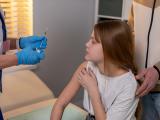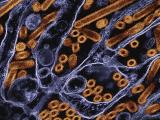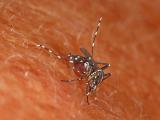Jul 19, 2010
H5N1 infection confirmed in Indonesian girl who died
Tests have confirmed that a 14-year-old Indonesian girl who died "a few weeks ago" had H5N1 avian influenza, according to a report yesterday from Antara, Indonesia's state news agency. A Sukuharjo district health official in central Java, where the girl lived, said testing at the health ministry's laboratory in Jakarta confirmed the infection. He said the girl had had contact with a dead chicken before she got sick. If confirmed by the World Health Organization (WHO), the girl's case will increase Indonesia's H5N1 toll to 167 cases with 138 deaths. The WHO's current global H5N1 count stands at 500 cases, with 296 deaths.
Jul 18 Antara report
Pertussis vaccine safe, say CDC researchers
Acellular pertussis vaccine is safe for routine immunization in early childhood, claim researchers from the Centers for Disease Control and Prevention (CDC) in Pediatrics. An association has long been noted between the previously used diphtheria-tetanus toxoids-pertussis (DTP) vaccine and seizures, but limited population studies have evaluated the risk with the diphtheria-tetanus-acellular pertussis (DTaP) vaccine that has replaced DTP. The authors did a retrospective study of data from seven managed care organizations that are part of the Vaccine Safety Datalink project and compared the incidence of seizures in "exposure" periods (0 to 3 days after DTaP vaccination) and control periods in children aged 6 weeks to 23 months. A total of 7,191 seizure events occurred among the 433,654 subjects, but the incidence was not higher during the exposure periods.
Jul 19 Pediatrics abstract
Local officials question CDC report on dengue prevalence in Key West
A paper from the CDC and the Florida Department of Health presented last week at the International Conference on Emerging Infectious Diseases in Atlanta claimed that an estimated 5% of the population of Key West, Florida, showed evidence of exposure to dengue fever in 2009. A CDC press release preceding the presentation emphasized the importance of this, saying the study was undertaken after three cases of dengue were reported that year and expressing concern that the disease may be reemerging in the area and could gain a foothold there and in nearby cities. However, the local Monroe County Health Department called the study inaccurate, saying that extrapolating the percentage of positive results in the 240-person sample to the total population was not valid and was causing overblown concern and misinterpretation.
Jul 13 CDC press release in question


















